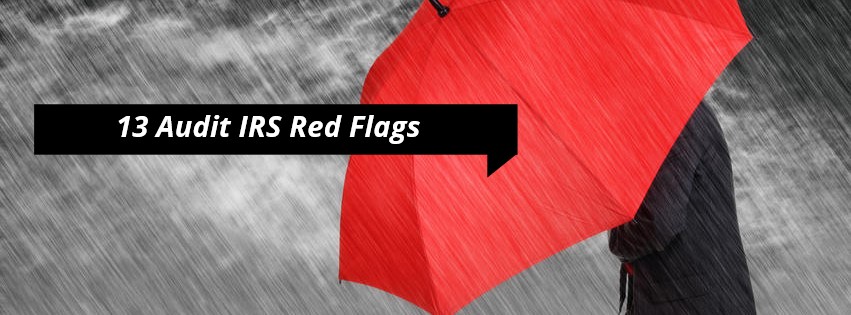About 1% of all tax returns are audited each year. Here is what you should know in order to minimize your chances of an audit.
1. Not reporting all taxable income
Report all taxable income from all W-2s and 1099s you receive. The IRS receives copies of your W-2s and 1099s, so a mismatch on your reported income will immediately raise a red flag.
2. Too many charitable deductions
The IRS takes into account the average donation at all income levels, so make sure your charitable deductions are not disproportionately large compared to your income. The larger the contribution the more supporting documentation may be required.
3. Claiming day-trading losses on Schedule C
In order to report trading losses or expenses on Schedule C, you must qualify as a trader and not an investor. Traders buy and sell securities frequently and their activity is continuous. Investors profit on long-term appreciation and dividends and thus must report expenses as a miscellaneous itemized deduction on Schedule A.
4. Claiming rental losses
Those who actively participate in renting property are allowed a deduction of up to $25,000 of loss against other income as long as the gross income does not exceed $150,000. If you materially participate in real estate as developer, broker, landlord, etc. and spend more than 50% of all working hours and at least 750 hours per year, you can write off losses without limitation.
5. Deducting business meals, travel and entertainment
Most underreported income and overstated deductions are done by the self-employed. If you are self-employed, be careful not to mix business with personal tranastions and keep detailed records of each business transaction.
6. Claiming 100% business use of a vehicle
It’s impossible to claim 100% business use of a vehicle without raising red flags. Keep log of your mileage, showing business and personal miles used for each trip. As an alternative you can use the IRS standard mileage rate however you won’t be able to claim any out-of-pocket expenses such as maintenance or insurance.
7. Writing off a loss for a hobby activity
If you receive income from a hobby, you must report it. The expenses you incur can be deducted up to that income level however, the IRS does not allow writing off losses from a hobby.
8. Claiming the home office deduction
If you have a home office you can claim the space and deduct a percentage of the realted expenses such as rent, real estate taxes, utilities, etc. You can also opt to use the standard rate of $5 per square foot of space with a maximum deduction of $1,500. Regardless, the IRS requires that designated office space be used for business purposes only.
9. Taking an alimony deduction
When certain rules are met, alimony is deductible for the payer and taxable for the receiver. Alimony does not include child, or noncash property settlements and payer’s liability ends when the former spouse dies. Make sure you satisfy all the requirements when deducting alimony.
10. Running a small business
For small business owners in cash-intensive business maintaining detailed records of all transactions is of uptmost importance. Businesses with cash revenue are less likely to accurately report all taxable income and as such can be an easy target for the IRS.
11. Not reporting a foreign bank account
There are severe penalties for those who fail to report foreign bank accounts. If you have any foreign accounts totaling more than $10,000 at any time during the previous year, make sure you file FinCEN Form 114 by June 30.
12. Large cash transactions
Banks are required to report cash transactions larger than $10,000 as well as large cash transactions that look suspicious. Depositing large cash amounts, even if slightly less than $10,000, within a small time frame will likely promt your bank to report suspicious activity.
13. Making a lot of money
Those reporting 1 million or more on income are 1/13 times more likely to be audited. Those with income of $200,000 or higher have an audit rate of 2.71% compare to those making less and having an audit rate of only .78%. So be aware that the more you make, the more important it is to practice good bookkeeping.
For more information about each topic visit the links provided or subscribe to our blog
